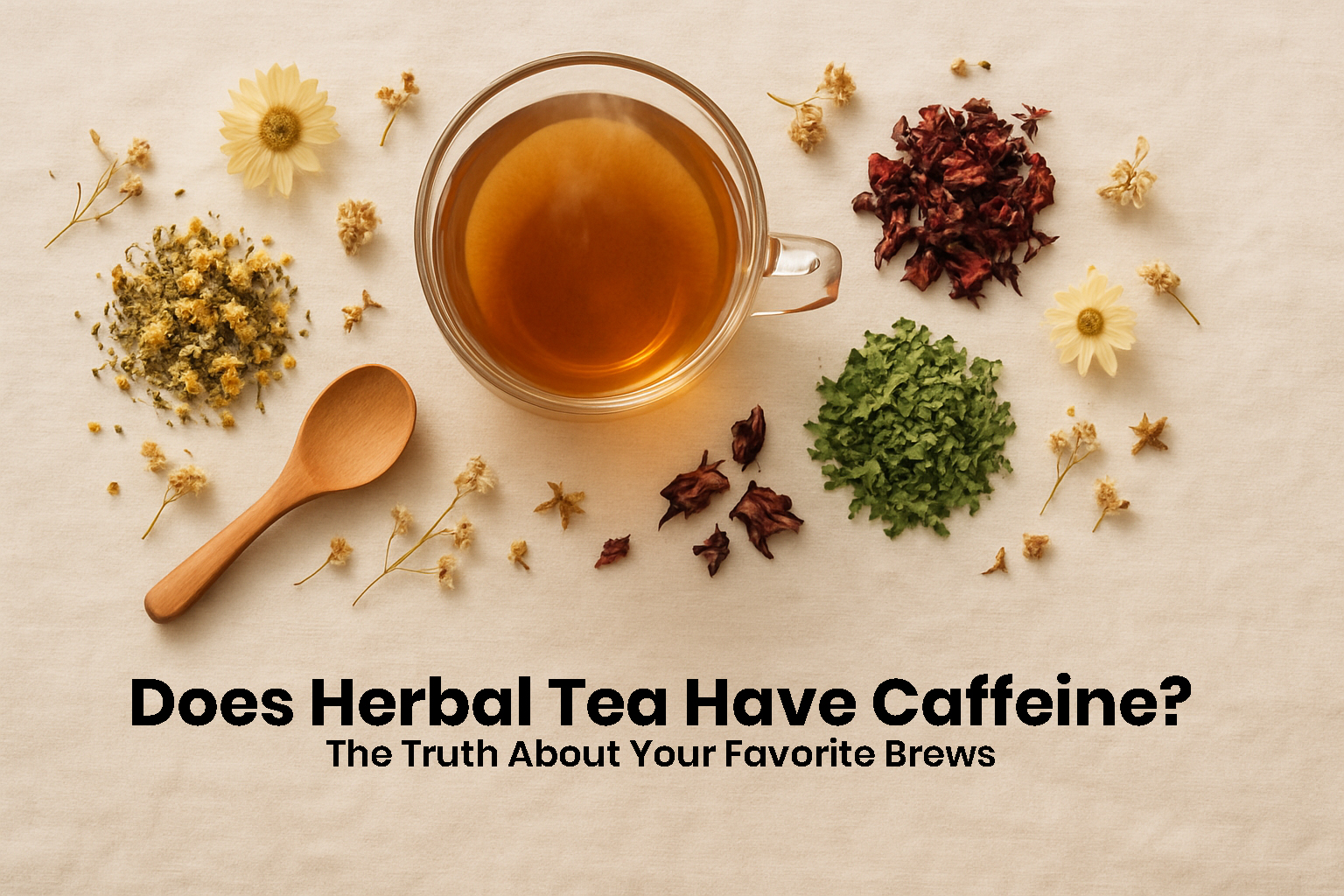Introduction
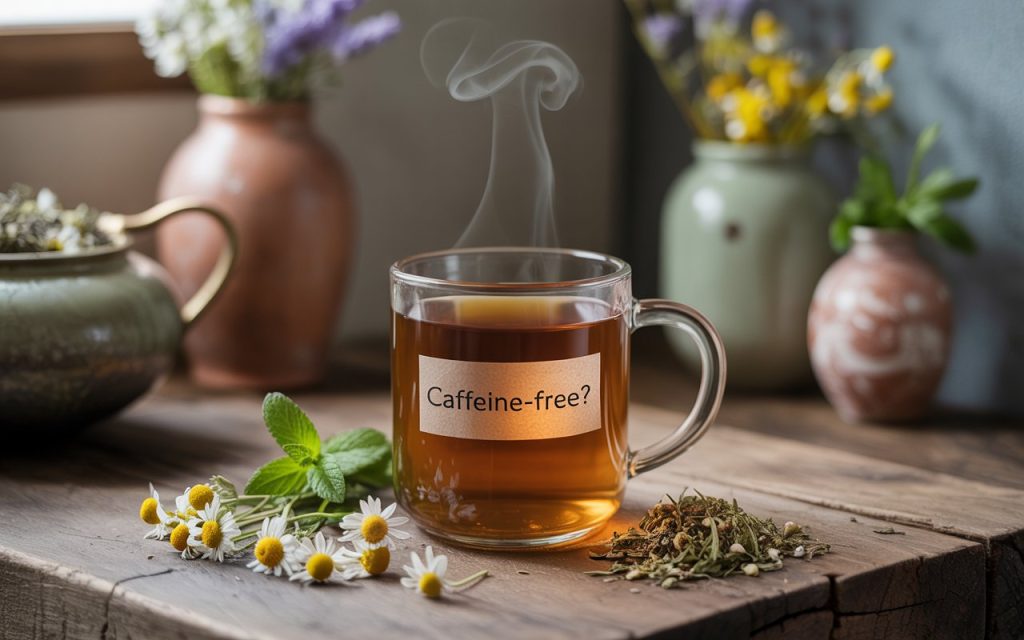
Well, herbal tea lovers! No doubt about it, cozying up with a mug of warm chamomile or peppermint is the best, is not it? Not only do they taste wonderful but they also have a lot of health benefits. But most of the tea lovers out there might be thinking: Does herbal tea contain caffeine?
Anything is not really fun about it, nor will an enlightened drinker enjoy it as it is going to be required now. All of this makes it all important for you to know what is in your tea if you’re avoiding stimulant – maybe for sleeping better, feeling less hyped, or just mellowing out. Let’s explore the world of herbal teas, along with all pressure release on caffeine, so you can choose to drink the right one for you!
What Is Herbal Tea?
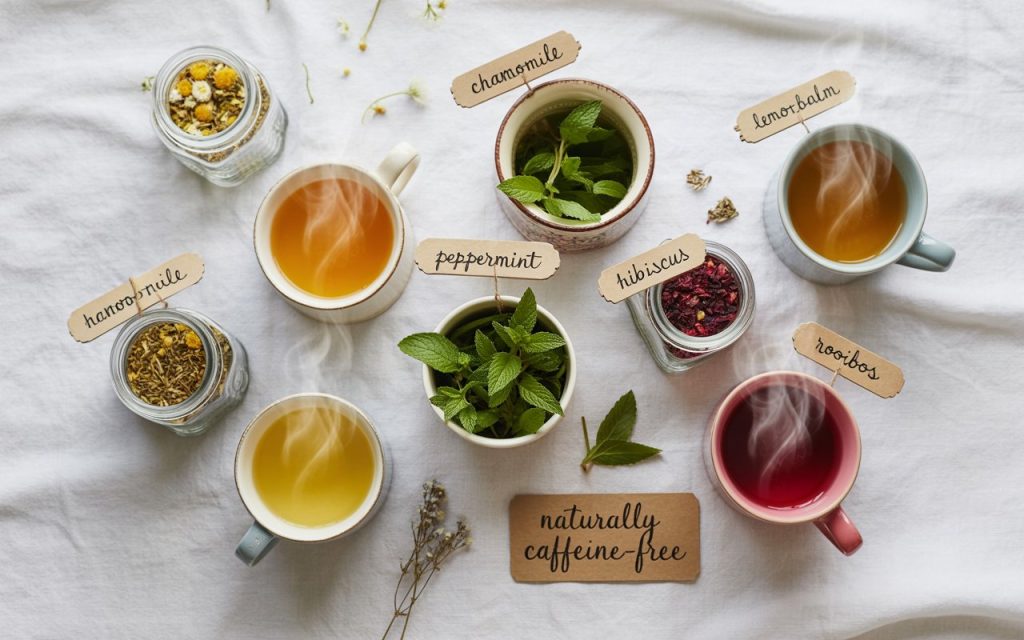
You would know that people often refer to their herbal tea simply as tea, but it is something entirely different from the normal tea we know-both black, green, oolong, and white tea. All of these come from the Camellia sinensis plant and naturally have some caffeine in them.
Herbal teas, which are more like cosseting stews of blended herbs, flowers, seeds, roots, or fruits steeped in hot water, make for an ideal beverage at any time of day. Not originating from the tea plant, these beverages are naturally caffeine-free, ensuring you relish them during any hour for sipping!
Popular herbs used in herbal teas include:
- Chamomile flowers
- Peppermint leaves
- Hibiscus petals
- Lemon balm
- Rooibos
Each herb offers its own unique flavor and set of health benefits.
Does Herbal Tea Have Caffeine?
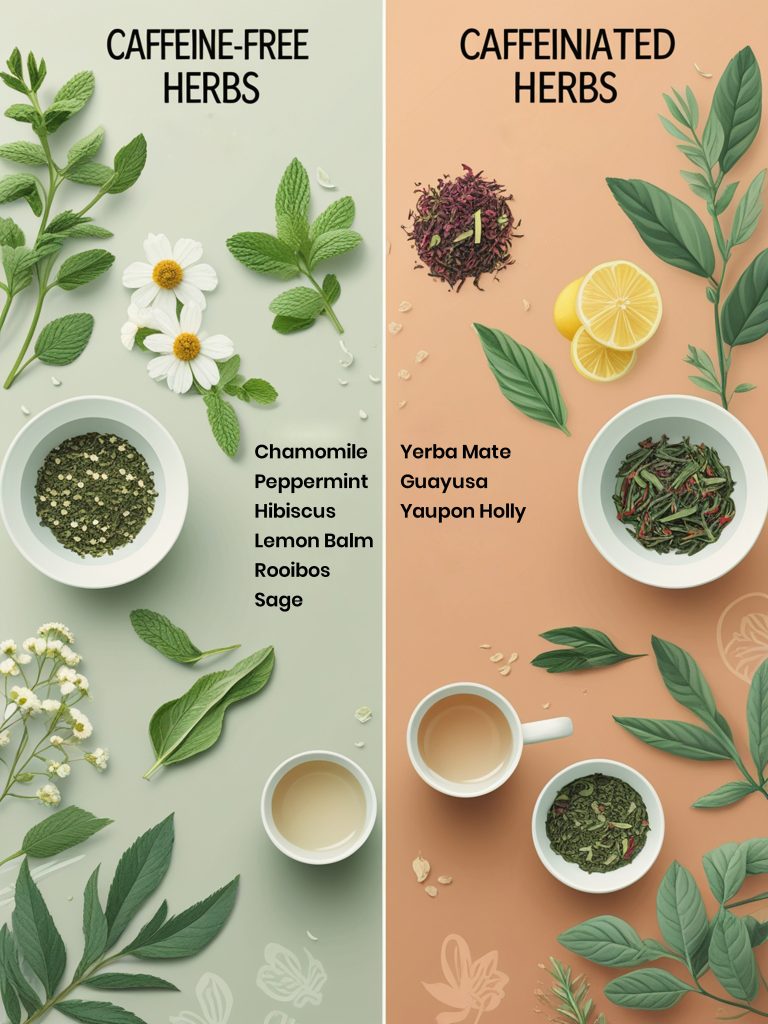
Since herbal teas don’t contain caffeine, the answer is usually no. This is because of the reason that tea flowers and leaves from the Camellia sinensis plant naturally contain caffein. But it is absent in most of the herbs used for brewing herbal teas.
Nevertheless, there are exceptions of this rule. Some herbal ingredients like yerba mate, guayusa, and yaupon holly have naturally caffeine.
It is thus recognized by a series of herbal teas that certain amounts of caffeine can come with a slightly or an appreciable amount of it, although in a large majority of the cases, it is void of it.
Herbal Tea vs. True Tea: Caffeine Content Comparison
Here is the comparison of the caffeine content of popular teas to help you understand the differences:
Tea Type | Caffeine (per 8 oz cup) |
Chamomile (herbal) | 0 mg |
Peppermint (herbal) | 0 mg |
Hibiscus (herbal) | 0 mg |
Yerba Mate (herbal) | 30–50 mg |
Guayusa (herbal) | 25–45 mg |
Green Tea (true tea) | 25–35 mg |
Black Tea (true tea) | 40–70 mg |
Coffee (reference) | 80–100 mg |
This comparison shows that most herbal teas are completely caffeine-free, but some herbal options like yerba mate do have a stimulant effect comparable to green or black tea.
Common Herbal Teas That Are Naturally Caffeine-Free
Looking for a caffeine-free alternative? Try these soothing herbal teas:
Chamomile: It is the best tea for nighttime. It is relaxing, minimal and perfect for relaxing during a long day. It helps reduce anxiety and fell you asleep deeply.
Peppermint: Fresh, inspiring and helpful for digestion. It is caffeine free, so drink it after eating to relieve gas or when headaches due to stress start appear.
Hibiscus: It is filled with antioxidants, tart and acidic. It it similar to which helps with heart health and helps in blood pressure control.
Lemon Balm: Lemon balm is a truly great herb. Sometimes it likes to bask in a little sunlight, for the most part, it belongs to the mint family. It promotes relaxation and mental clarity; hence, this highly reputed herb is for stresses.
Rooibos: Rooibos is based in South Africa. It is an earthy and naturally sweet tea that is full of minerals and antioxidants. It gives warm vibe and no caffeine.
Sage: It is not just a herb for the kitchen. It is a good choice for a caffeine free drink. Because of its anti-inflammatory and brain boosting benefits.
If you’re cutting back on caffeine or just want a comforting, healthy drink, these herbal teas are a perfect choice.
Caffeinated Herbal Teas
Caffeine is rare in herbal teas except for:
Yerba Mate: A classic South American drink, made from leaves of Ilex paraguariensis and gives a fairly smooth energy surge ranging from 30-50 mg of caffeine per cup.
Guayusa: Yet another holly plant native to the Amazon rainforest, it contains caffeine amounts of 25-45 mg per cup; calming energy without any jittery feelings.
Yaupon Holly: The only North American native ever with caffeine in its leaves, appreciates the mild stimulating properties akin to green tea owing to its light flavor.
How to Tell If a Herbal Tea Has Caffeine
Avoid tips on unwanted caffeine:
Check the packaging: It should say ‘caffeine free’ or ‘naturally caffeine free’ on the label.
Check the ingredient list: Ingredients like yerba mate and guayusa (which indicates caffeine presence), green and black teas, etc.
Know the meaning of the labels: Decaffeinated- it is removed; Caffeine-free-except caffeine never was.
Beware of brews: Certain blends of herbs may have true teas- so check closely.
Why Go Caffeine-Free? (Benefits of Herbal Tea Without Caffeine)
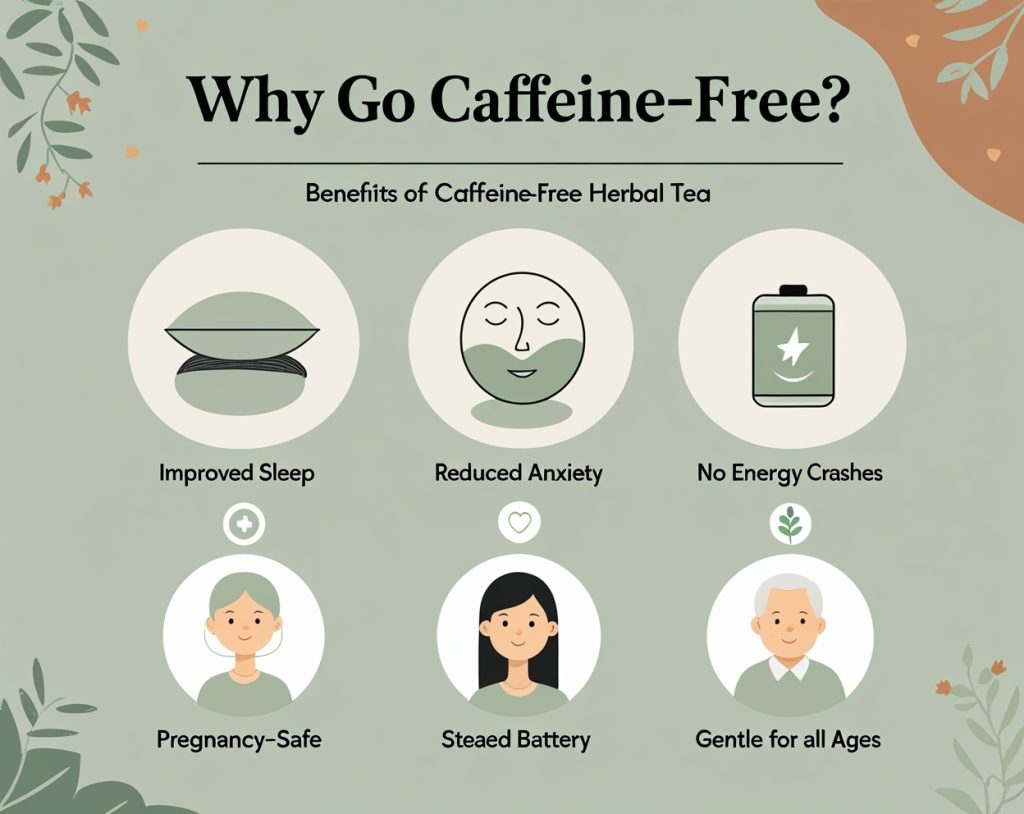
Choosing herbal teas free from caffeine could help you enjoy physical benefits on many levels:
Better sleep: Caffeine, of course, is known to cause interruptions, such as in insomnia or restlessness during the night.
Less anxiety: The very act of making a cup of herbal tea can be soothing and comforting.
No energy below par: Herbal teas do not act the other way; they keep you hydrated steadily without lowering your energy. The swell of energy follows a low or crash within hours of having coffee or caffeinated tea.
Safe for pregnant women: Whereas several herbal teas are safe for the expecting woman, it is wise to limit caffeine consumption.
Gentle enough for all ages: Teas without caffeine are gentle, safe, and soothing enough for children and the elderly, as well as for others who cannot tolerate caffeine.
Final Thoughts
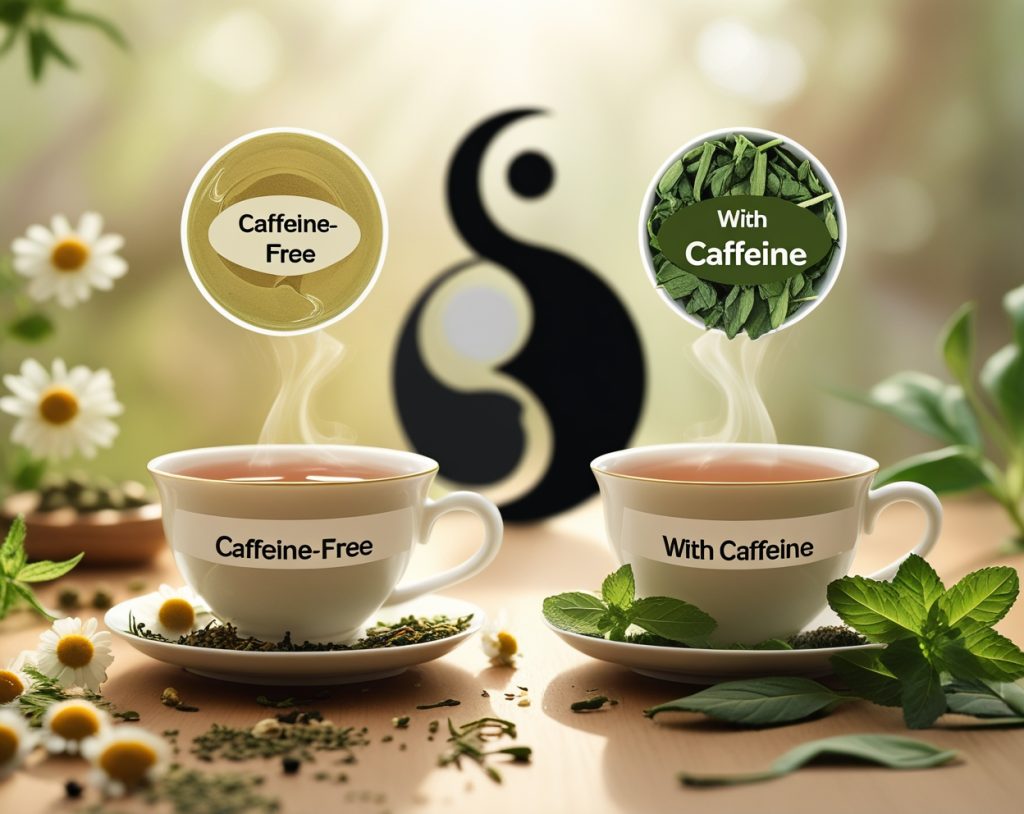
Herbal tea is usually caffeine-free. Most herbal teas are self-caffeine-free and tend to provide the body with a soothing, health support alternative to true teas and coffee.
Yet some others, not limited to herbal teas, contain caffeine from natural sources, such as yerba mate, guayusa, and yaupon. If that’s what you’re after, it can help give you a clean shot of energy.
In the end, all that remains is reading the label and understanding the ingredients of a herbal tea. With this, you would enjoy the aspects of your favorite brew minus that typical buzz or with it, as per your preference.
FAQ
Which herbal teas are best for sleep?
Herbal tea does not contain caffeine. Some of them are chamomile, lemon balm, valerian root and lavender.
Does yerba mate have more potency than coffee?
Yerba mate is actually contains low amounts of caffeine than coffee but it has other stimulating compounds as like theobromine to making it feel stronger.
Can I drink herbal tea before bed?
Yes, you can! But you have to remember that it is better to go with caffeine free varieties like chamomile and lemon balm.
What is the difference between caffeine free and decaffeinated?
The meaning of "Caffeine-free" is a product that naturally does not contain caffeine, on the other hand "decaf" refers to a naturally caffeinated product from that caffeine has been removed.

